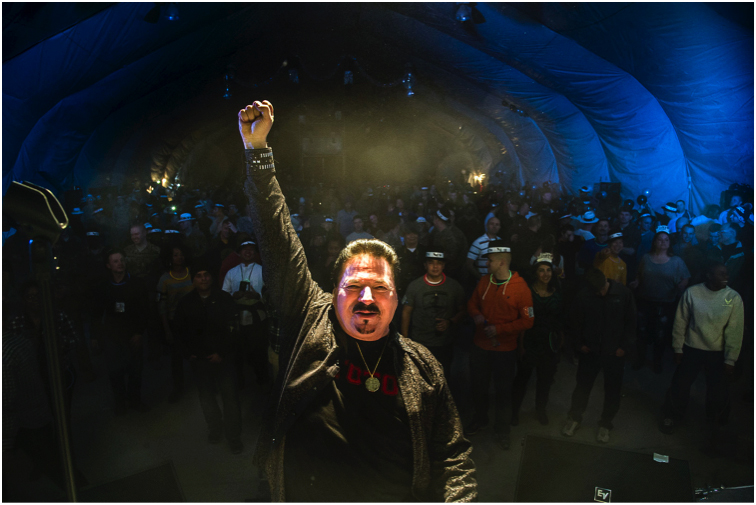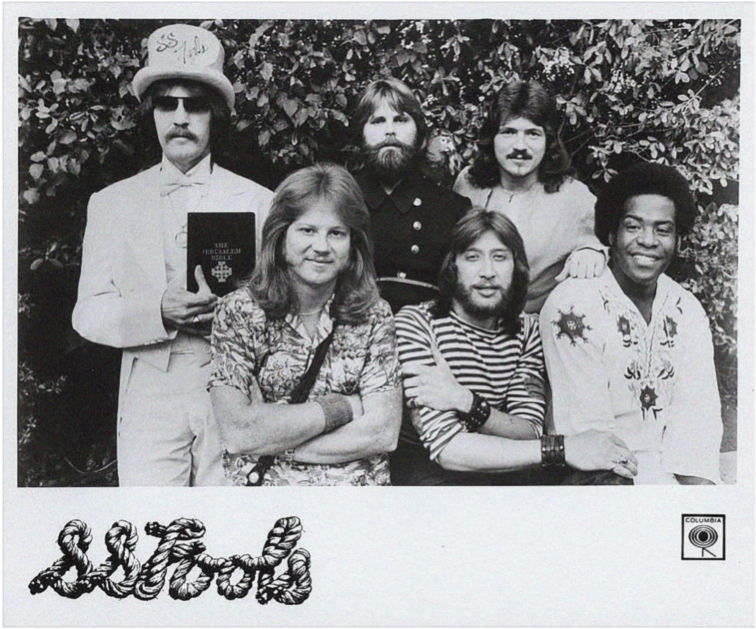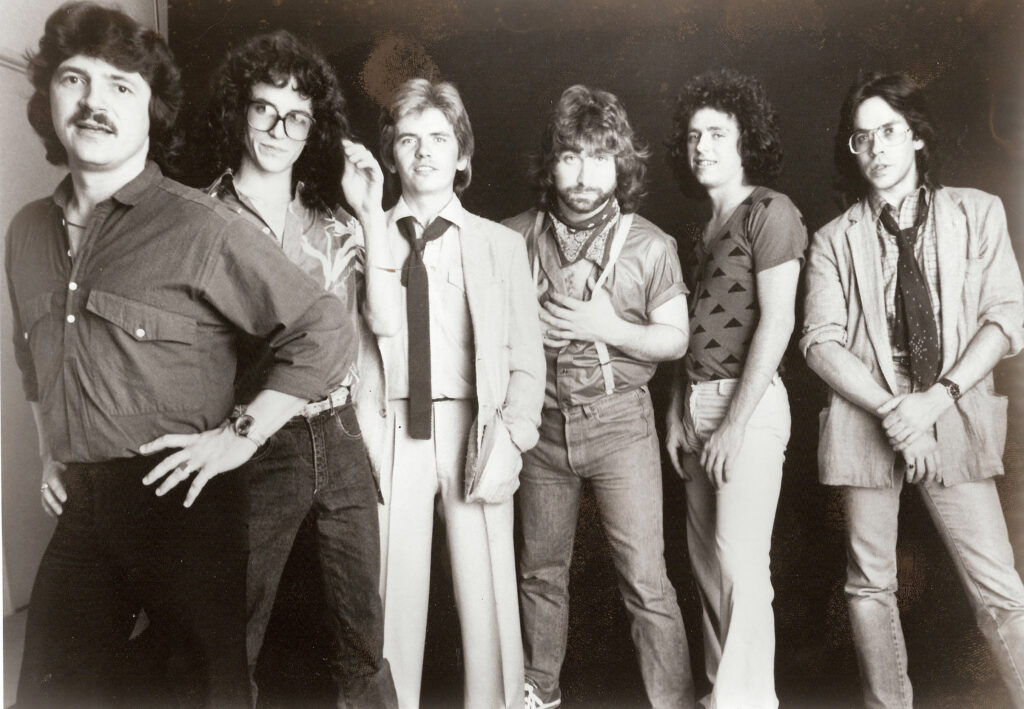
Bobby Kimball is the acclaimed rock vocalist who sang on many of Toto greatest hits such as “Africa”, “Rosanna” and “Hold The Line”, to name a few. His incredible vocal strength and perfect pitch helped the band sell over forty million records worldwide. In a chequered relationship with Toto, Kimball has been in and out of the band and when not recording or performing with them, he worked on several solo projects as well as session work with rock ‘n’ roll and pop greats including Joe Cocker, Diana Ross, Tom Jones, Al Jarreau, Barbara Streisand, Richard Marx, Chicago, Edgar Winter, Michael McDonald (Doobie Brothers), Spencer Davis and more.
In recent years Bobby Kimball was diagnosed with frontotemporal dementia and his health has been diminishing ever since. Long-time friend and producer of Bobby’s solo albums, John Zaika has stood by the mercurial Kimball through thick and thin and has been driven to document Bobby’s life in a new upcoming film Kite on a Sting: The Bobby Kimball Story. The documentary looks at Bobby’s early life, playing in band as a child, through to the Toto golden days and his solo career but ultimately it’s a story about friendship, told through John Zaika’s eyes. John Zaika hopes to have a rough cut of ‘Kite on a String: The Bobby Kimball Story’ completed by October and is currently negotiating a distribution deal. Standby for more news on the film’s release.
Australian Musician editor Greg Phillips had the pleasure of speaking with ‘Kite on a String: The Bobby Kimball Story’ producer John Zaika about the movie and his friendship with Bobby Kimball.
MORE ABOUT BOBBY KIMBALL AND THE DOCUMENTARY
Born in Texas in 1947, Kimball grew up in Louisiana and started playing piano at the age of four. His mother was blessed with “perfect pitch” as a singer and so became a major inspiration in Kimball starting his first group at the age of eight.
Throughout his youth, he played in about fifteen different bands in Louisiana and Texas. He finished up in an outfit called “The Levee Band”. During a tour with the group, Kimball was invited to travel to LA to sing with the musicians who had made up the successful rock band, “Three Dog Night”. In late 1974, Allsup and Sneed left Three Dog Night to form a new band, “S.S. Fools”. Working with veteran Three Dog Night producer, Richard Polodor (Steppenwolf, Iron Butterfly, Chris Hillman, Alice Cooper, Phil Seymour, Dwight Twilley), they brought in Kimball as lead singer and keyboard player. Refining their sound to be a somewhat funkier and more soulful take than their previous group, they signed to CBS Records before disbanding almost a year and a half later, having only recorded their self-titled album.
Being based in the thriving LA music community, S.S. Fools’ rehearsals were frequented by David Paich and Jeff Porcaro who eventually offered Kimball to join their new group that was to become Toto. Their eponymous self-produced debut LP was released in 1978. The breakout single from it was “Hold The Line” which occupied the Billboard US Top 10 for 6 weeks, also reaching Number 14 in the UK. Toto was nominated for “Best New Artist” at the 20th Grammy Awards on February 15, 1979, but lost to L.A. disco/soul group, A Taste of Honey.

Toto’s second studio album, ‘Hydra”, was produced by the band, Reggie Fisher (Rita Coolidge, Sly Stone, Bobby Womack, Waylon Jennings, Michael Jackson, T-Bone Burnett, Los Lobos) and Tom Knox (Hall & Oates, Smokey Robinson, Randy Newman, Rickie-Lee Jones, The Jacksons, Sarah Vaughan, Don Henley). It was released in 1979, reaching the US Top 40 Billboard Pop Albums chart. Though not as successful as their debut, Hydra still managed to receive gold status.
“Turn Back” was their third album from 1981. It was produced by Toto and Geoff Workman (Queen, The Cars, Journey, Foreigner, Mötley Crüe, Twisted Sister). The LP featured heavier guitars and less keyboard than their previous outings. It didn’t produce a hit single in the US, though the album’s lead single, “Goodbye Elenore” charted well in Japan, solidifying their Japanese fanbase for years of touring since.
With commercial pressure mounting from the record company to produce a new hit record, the group embarked on recording their self-produced fourth album, “Toto IV”. A much larger than usual budget provided by the label enabled them to use as many as 3 separate 24-track recorders at the same time (most bands used a single 24 track recorder). It took many months during 1981 and 1982 over various locations including Sunset Sound and Record One in Los Angeles.
Strings were recorded at Abbey Road Studios, London, with additional recording at “Hogg Manor” (David Paich’s home studio in Sherman Oaks, California, which was later unfortunately flattened in the 1994 Northridge earthquake). It was mastered by Doug Sax (The Doors, Frank Zappa, Harry Nilsson, Rolling Stones, Pink Floyd) at Sterling Sound, New York .
Toto IV was released in 1982 and became Triple Platinum-certified, achieving one of the most commercially successful albums of the year. “Rosanna”, “Africa” and “I Won’t Hold You Back” each entered the Top 10 on the Billboard Hot 100 chart. Kimball and Toto parted ways in 1984 during the sessions for the “Isolation” album. He began a solo career and relocated to Germany and continued to work as a session artist.

Kimball’s session work experience is like a “Rolodex” of rock ‘n’ roll and pop greats including Joe Cocker, Diana Ross, Tom Jones, Al Jarreau, Barbara Streisand, Richard Marx, Chicago, Edgar Winter, Michael McDonald (Doobie Brothers), Spencer Davis, Quiet Riot, Little River Band, David Foster, The Tubes, Nik Kershaw, Leo Sayer, Mickey Thomas, Ray Charles, Blood Sweat & Tears, Alice Cooper and Jack Bruce.
Kimball later resurfaced in Toto with his longest stint from 1998, remaining the lead vocalist for the next 10 years until the band dissolved in 2008. He has recorded several solo albums including his two most recent, “We’re Not In Kansas Anymore” (2016) and “Mysterious Sessions” (2017) which includes three Toto “mega-hits” plus songs by Pink Floyd, The Beatles, Aerosmith and Journey.
A message from producer John Zaika and the team making “Kite On A String – The Bobby Kimball Story”.
“Bobby Kimball has had roughly a 62-year music career which is unheard of and unfortunately has been diagnosed with frontotemporal dementia. It is sometimes referred to as frontotemporal disorder or FTD. Frontotemporal Dementia affects roughly 10 to 15% of all dementia cases and is rare. There is no cure, the life expectancy is usually 6 to 10 years and it creates all kinds of neurological disabilities as well as cognitive behavioural problems and social problems. It’s extremely painful and taxing on the family members, caregivers and you have to have a lot of patience, compassion, love and understanding as they become basically childlike.
It’s not often in documentary films about music artists that you get the full back story, not only of fame but the story of struggle and in this case dementia, hearing loss, online hatred and bullying. Please don’t get me wrong. Bobby Kimball has had a wildly successful career but it’s come at a cost and sometimes with a beat down.
This film has everything to do with pop music culture as well as a touching human story about life and the arts as told from the filmmaker John Zaika’s perspective and his friendship with Bobby.
They’ve been friends since 1989 and have written many songs together and have recorded 2 records together with plenty of laughs in between. John’s reasons for doing this film are to shine a bright light on Bobby’s career as well as to share some of the music that’s never been heard before and also to bring awareness to frontotemporal dementia because it is rare and there is no cure. Bobby Kimball will be inducted into the California Music Hall of Fame on September 23
About The Producer JOHN ZAIKA
John Zaika’s early career was spent playing bass in many cover bands from the time he graduated High School, from 1983 till 1991 when he then became a second engineer for renowned (Grammy winning) producer Jeff Lorber in Los Angeles. Zaika resided at Lorber’s estate for the following two years second engineering on every project that Lorber was producing at that time. It was during those two years that Zaika started honing in on his songwriting and pitching songs to the likes of Bobby Kimball (Toto) and Kenny “Babyface” Edmonds.
In 1994 Zaika signed a publishing deal with Centium, in Beverly Hills, run at the time by ex-Dick James publishing executive, Arthur Braun. Zaika produced and wrote a five song EP for Starship front man, Mickey Thomas. It was released in 1998 with notable songs “Love Can Save The Day” and “Next Time”. By the late 1990s, Zaika was given his first opportunity to produce and write what would become Toto’s lead singer, Bobby Kimball‘s first all-original solo album, “All I Ever Needed”. It was released by Point Music and later, Frontiers Records in 1999.
In 2017 John Zaika was producing and writing a second solo album for Bobby Kimball, titled “We’re Not In Kansas Anymore”. In 2018 Zaika co-scored a song for the motion picture, “Time Toys”, directed by Mark Rosman with a song titled, “ Just Like Brother’s”.
2021 finds Zaika working on an original rock project “Tribal Reasons” and a studio project, “Tennington Park”. He also is working on a redo of his first production of the Bobby Kimball Record, “All I Ever Needed” with co-production and vocal assistance from critically acclaimed vocalist, Bill Champlin (Chicago). 2022-2023 finds John Zaika doing the film and soundtrack “Kite On A String – The Bobby Kimball Story”.
John Zaika hopes to have a rough cut of ‘Kite on a String: The Bobby Kimball Story’ completed by October and is currently negotiating a distribution deal. Standby by for more news on the film’s release.
Bobby Kimball (official website): https://www.bobbykimball.com
John Zaika (official website): https://johnzaikamusic.com



